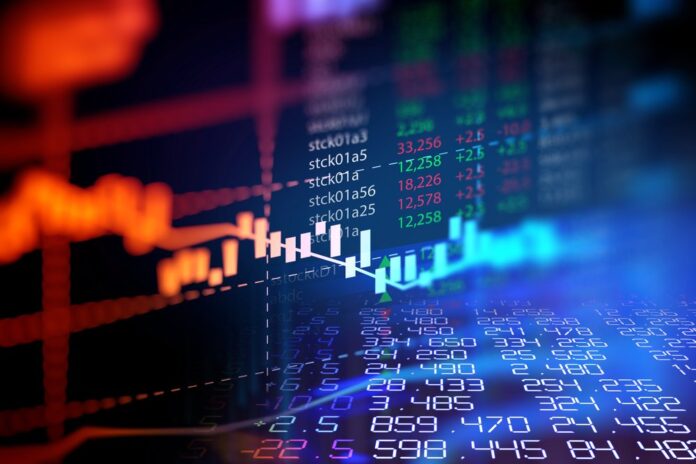LONDON: European stocks fell on Friday and Wall Street was set to open lower as investors braced for a US rate hike next week amid more warning signs pointing to a global economic slowdown, according to Reuters.
The World Bank’s chief economist said on Thursday he was worried about a period of low growth and high inflation in the global economy.
The International Monetary Fund said downside risks continue to dominate the economic outlook but it was too early to say if there will be a widespread global recession.
Wall Street sold off on Thursday after US economic data gave the Federal Reserve little reason to ease its aggressive rate-hike stance.
The downbeat tone continued during Asian trading, with data showing that China’s property sector had contracted further last month.
In the UK, retail sales fell more than expected, in another sign that the economy is sliding into recession as the cost-of-living crisis squeezes households’ disposable spending.
At 1032 GMT, the MSCI world equity index, which tracks shares in 47 countries, was down 0.4 percent on the day and set for its fourth consecutive day of losses.
Europe’s STOXX 600 was down 1 percent, set for a weekly decline of 2.3 percent. London’s FTSE 100 was up 0.2 percent and Germany’s DAX was down 1.5 percent.
Wall Street futures were down, with S&P 500 e-minis trading near two-month lows.
“We’re now seeing data confirm that the economy is indeed slowing down,” said Axel Rudolph, market analyst at IG Group.
“I expect stocks to head back down to below their March lows. If you are in an environment where you have central banks that aggressively raise rates, historically this has always led to bear markets.”
Markets were pricing in a 75 percent chance of a 75-basis-point rate hike and a 25 percent chance of 100 bps when the Fed meets next Wednesday. The Bank of Japan and Bank of England also meet next week.
Joachim Fels, managing director and global economic adviser at PIMCO, said in a note that although he expects a “relatively shallow” recession, “it is unlikely to be followed by a V-shaped recovery because sticky inflation will prevent central banks from easing policy in a meaningful way anytime soon.”
The US dollar index was up 0.1 percent at 109.95, still hovering near a 20-year high, and a touch lower against the yen at 143.23.
The yen could hurtle toward three-decade lows before the year-end, according to market analysts and fund managers.
The dollar’s strength pushed China’s offshore yuan past the 7-per-dollar level for the first time in nearly two years.
The pound weakened to a new 37-year low against the US dollar.
The euro was a touch lower at $0.9976. Germany’s two-year bond yields hit a fresh 11-year high after the European Central Bank vice president said an economic slowdown in the euro zone would not be enough to control inflation and the bank will have to keep raising interest rates.
Germany’s benchmark 10-year bond was up 6 bps on the day at 1.787 percent — having touched its highest since mid-June in early trading.
Oil prices edged higher, but were on track for a weekly drop amid fears of a reduction in demand.

